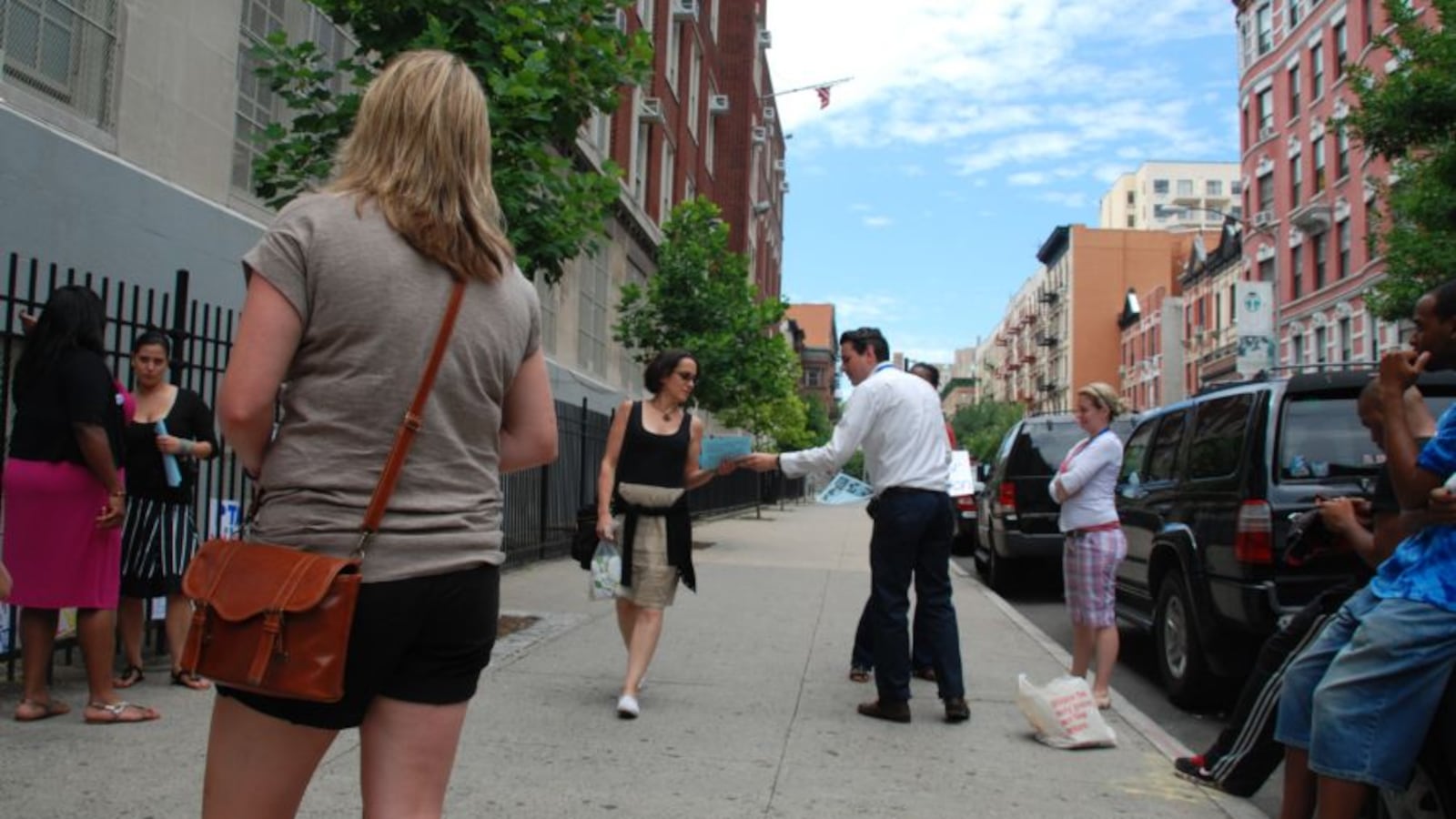A New York City parent filed a complaint with the U.S. Department of Education this week alleging the city improperly shared her child’s personal information to help with charter school recruitment — a claim city officials denied, saying they are permitted to share student information under certain circumstances.
In the complaint, Johanna Garcia says she is bombarded each year with promotional flyers and pamphlets from charter schools, including Success Academy. Some refer to her daughter by name, even though she never gave her consent for the city education department to share her daughter’s contact information.
City officials say they do not provide charters with that information directly. Rather, they share student contact information with a mailing service, which then sends the materials on the charters’ behalf — which officials say is allowable under an exemption in the the federal student-privacy law.
Success Academy made a similar argument, saying that the network tells the mailing service the zip codes where its schools are based and the grades it is looking to recruit students for, then the service mails the materials.
“At no point in the process does Success Academy ever even get the names of students,” said Success spokeswoman Nicole Sizemore in an email, adding that the promotional materials ensure that families know all the public-school options available to them.
In the complaint, Garcia argues that student information should not be provided to charter schools “either directly from the district or through a third-party mailing house.” Either way, her daughter’s personal information should not be used for charter-school recruitment, she said.
“I have a right to actively consent” to sharing that information, Garcia said. “It shouldn’t be something that’s done under legal jargon.”
City officials say an exemption in the privacy law allows them to share student information with outside entities if they are performing functions that city employees would otherwise perform, and the service provided has some educational value. In this case, officials say that alerting families to their schooling options has a clear educational purpose.
But critics say that since charter schools are privately run, efforts to help those schools should not be considered an educational benefit to district schools. Leonie Haimson, co-chair of the Parent Coalition for Student Privacy, said in a statement,”by helping in their recruitment efforts, they are actively undermining the opportunities of public school students whose interests they are supposed to serve, by enabling charters to divert increasing amounts of resources and space from our schools.”
Similar debates over student privacy have flared up elsewhere.
In Chicago, charter network leaders obtained a list of student names, which was leaked by a Chicago Public Schools employee, and used that information to send recruitment postcards .
In Tennessee, the state attorney general ruled that school leaders must provide information to charter authorizers. (Unlike New York, Tennessee has a state law directing districts to share information directly with charter operators.)
Garcia, who is president of the community education council in Upper Manhattan, also questioned whether charter schools have access to information beyond student names and addresses. She said that out of her three children, the only one to receive mailings was her daughter who took the city’s gifted and talented exam — suggesting to her that the charter schools were targeting high-performing students.
Both Success Academy and the city’s department of education rejected that idea, saying they do not provide schools any information about student test scores or their disability status.

